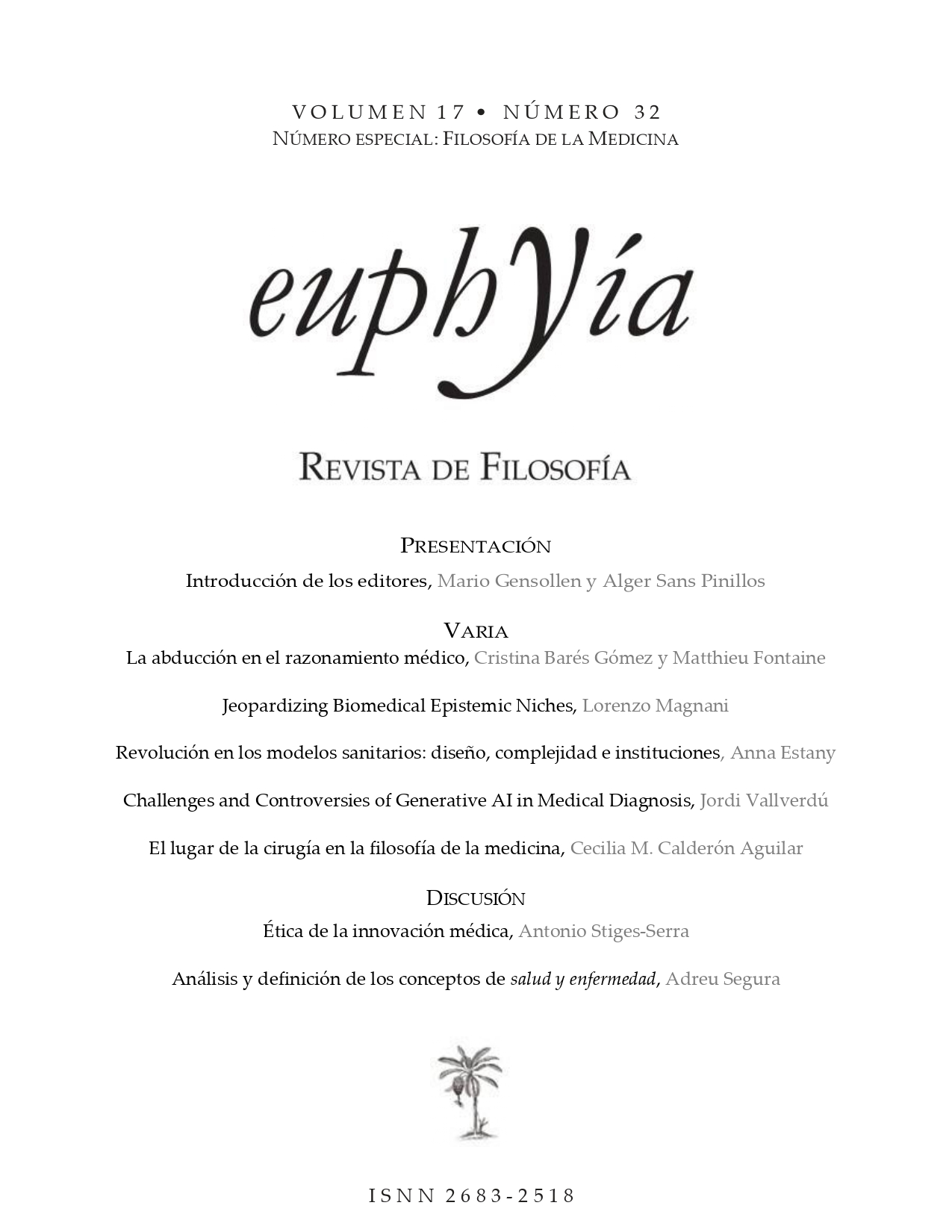Revolution in healthcare models: design, complexity and institutions
DOI:
https://doi.org/10.33064/32euph4956Abstract
Addressing healthcare models means facing complex phenomena that involve diverse perspectives ranging from medicine to the design of healthcare spaces, including the health of citizens. This requires an innovative and democratic approach in which epistemic, cognitive, and contextual values must be considered. To achieve this, it is unavoidable to address the theoretical frameworks that encompass the possibilities of a paradigm shift in healthcare models, among which we can highlight the following: the theories of design and its consideration as a third culture between the humanities and sciences; the management of complexity and its importance for interaction in order to carry it out effectively; the role of institutions as they constitute a key element of health models; and the relevance of the cognitive factor in a naturalized explanation of institutional design.
Downloads
Downloads
Published
How to Cite
Issue
Section
License

This work is licensed under a Creative Commons Attribution-NonCommercial-NoDerivatives 4.0 International License.

Este obra está bajo una licencia de Creative Commons Reconocimiento-NoComercial-SinObraDerivada 4.0 Internacional.












